InTheGarageMedia.com

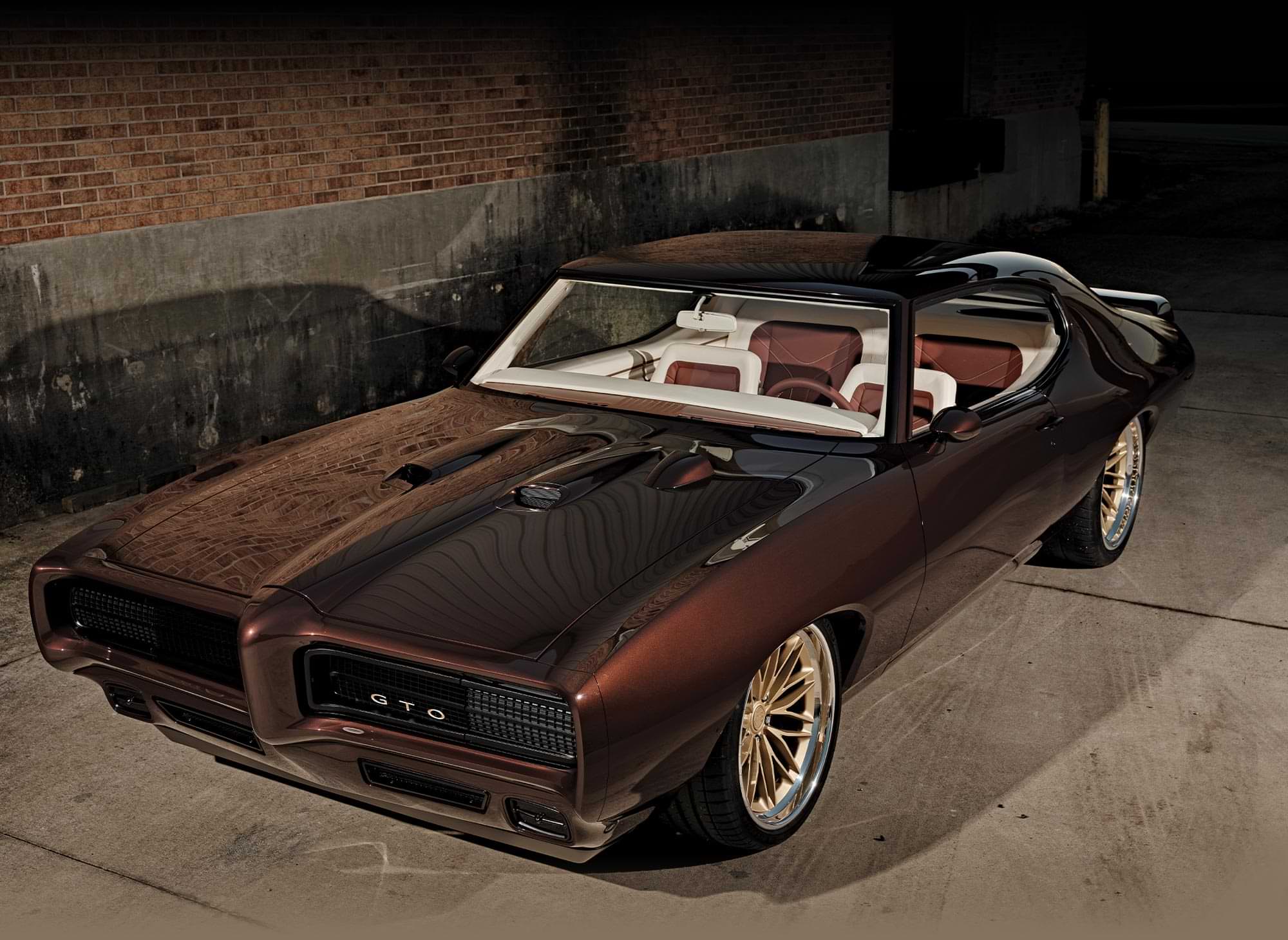
 Photography by John Jackson
Photography by John Jacksony 1969 the Pontiac GTO was cemented into the muscle car history books. Some would say that it is the keynote factory hot rod that started it all, with the most famous of all magazine stories that appeared in the Mar. ’64 issue of Car & Driver. They intended to compare a Pontiac GTO to a Ferrari GTO. But alas, the gods conspired, and the head-to-head comparison never materialized. But C&D still managed to “compare” one against the other. (Do you know what GTO stands for? It’s an acronym for Gran Turismo Omologato, a classification term commonly used in sports car racing.)
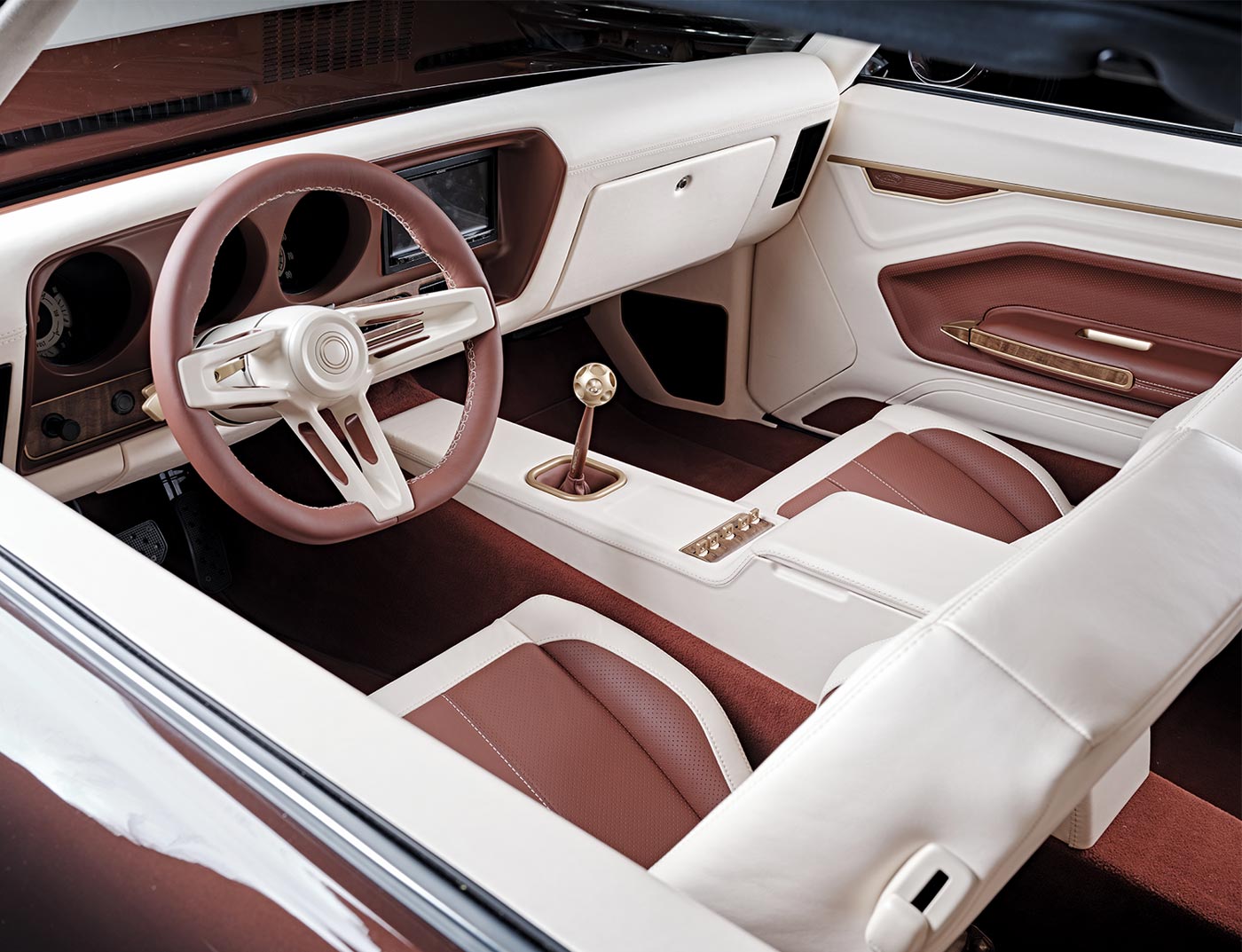
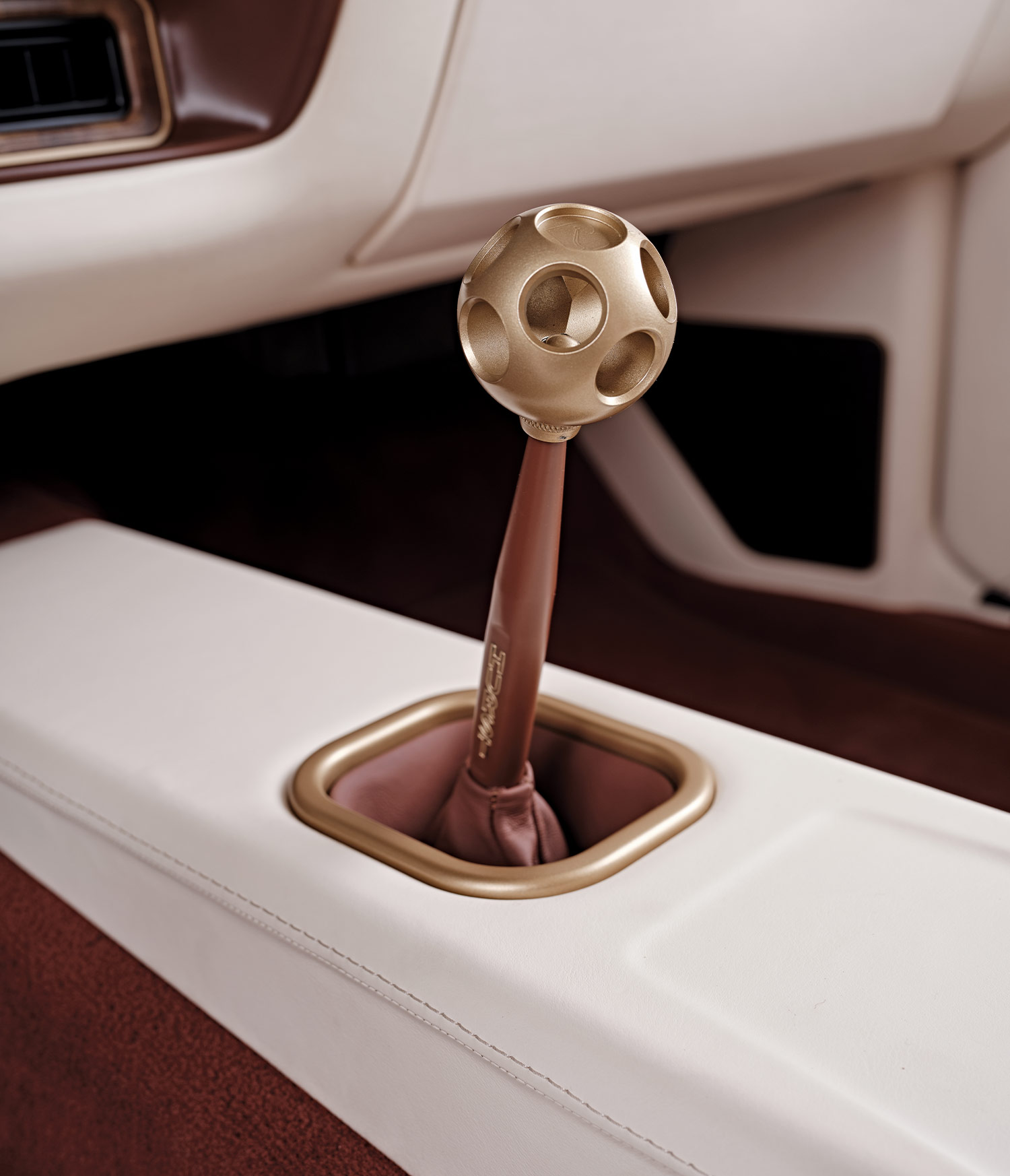
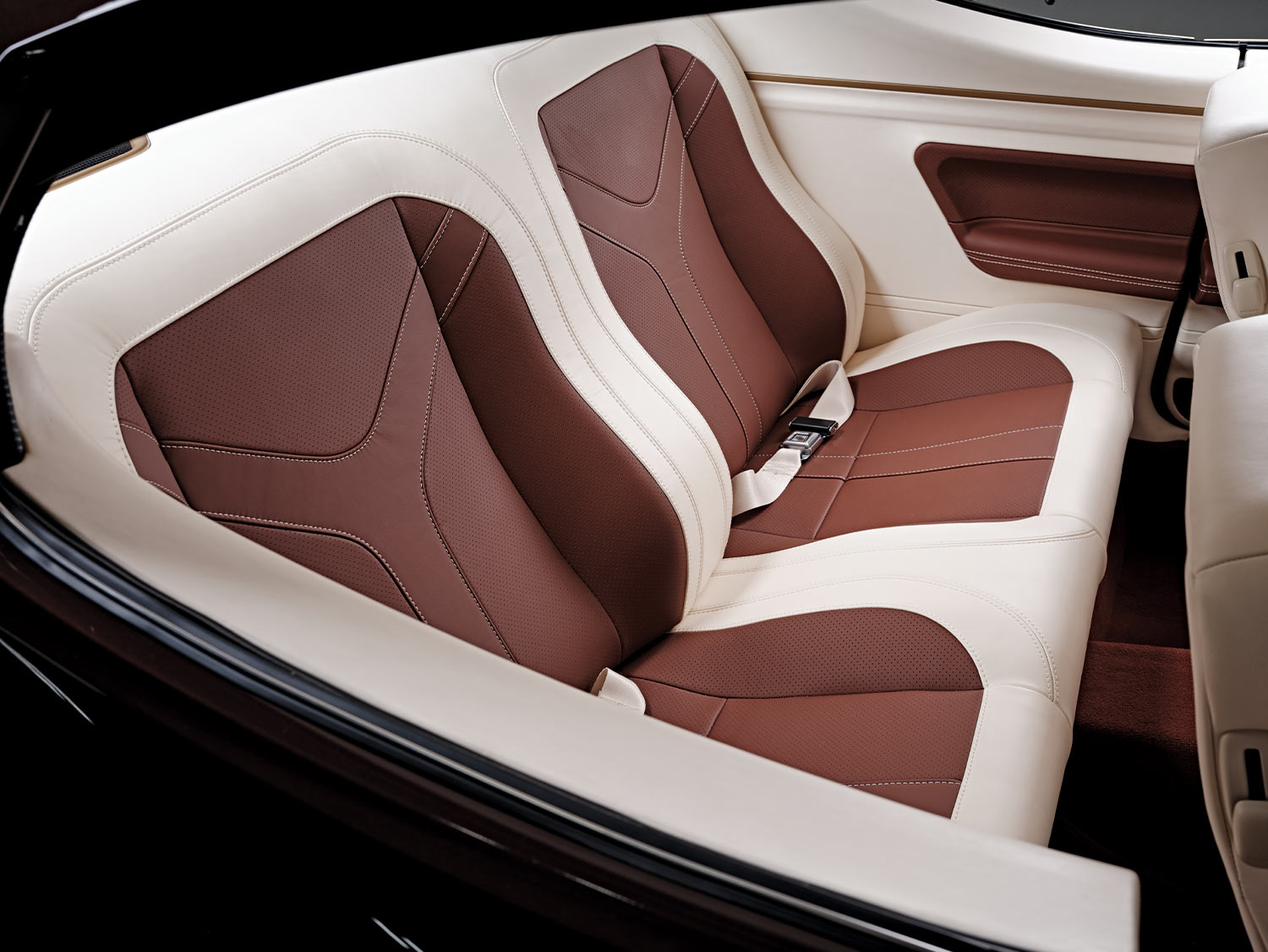
The ’69 GTO displayed in front of you, while beautifully built, immensely powerful, and an amazing performer, may not be as popular as the man who owns it. If I say Kevin Hart, this may strike a chord. Yes, that Kevin Hart, the world-class comedian and actor. Turns out he is no stranger to hot rods of all sorts. He isn’t averse to having some powerful ones, including a ’69 Road Runner, an ’87 Buick Grand National, a ’67 Mustang GT500E, and a ’69 Camaro. All of them can flatly get out of their way and pass you in the process. His ’70 Dodge Challenger, 1,000hp Hellephant, powered and built at Kindig It Design, took home the 2023 Triple Crown of Rodding Street Machine of the Year category. Dare we say this Mopar can get up and scoot! Well, his latest, this ’69 Pontiac GTO can stand on its own. Joining forces with Detroit Speed & Engineering (DSE), the result is an example of the stunning craftsmanship we have come to expect. The DSE crew responsible for this build include Jason Eads, Zach Arlen, David Hoff, Curtis Larsen, Bruce Datkuliak, James Seamans, and Nate Peterman along with local outside assistance from Michael Neighbors, Austin Moore, and Josh Smith.
Power for this GTO is nothing less than the now-discontinued but king-of-the-hill Chevrolet Performance dry-sump supercharged LT5 (6.2L or 376 cubes) used in the ’19 ZR1 Corvette. It was the most powerful Chevy V-8 produced at the time with 755 hp and 715 lb-ft out of the crate. The main focal point of the LT5 is the new R2650 supercharger, which is an exclusive accessory. It displaced 2.65 liters and produced 14 psi of boost. Compared to an LT4 engine that is about 4-1/2-psi more achieved at a slower max rotor speed of 15,860 rpm. Why slower? The slower rpm helps to keep the air charge cooler and cooler leads to more horsepower.
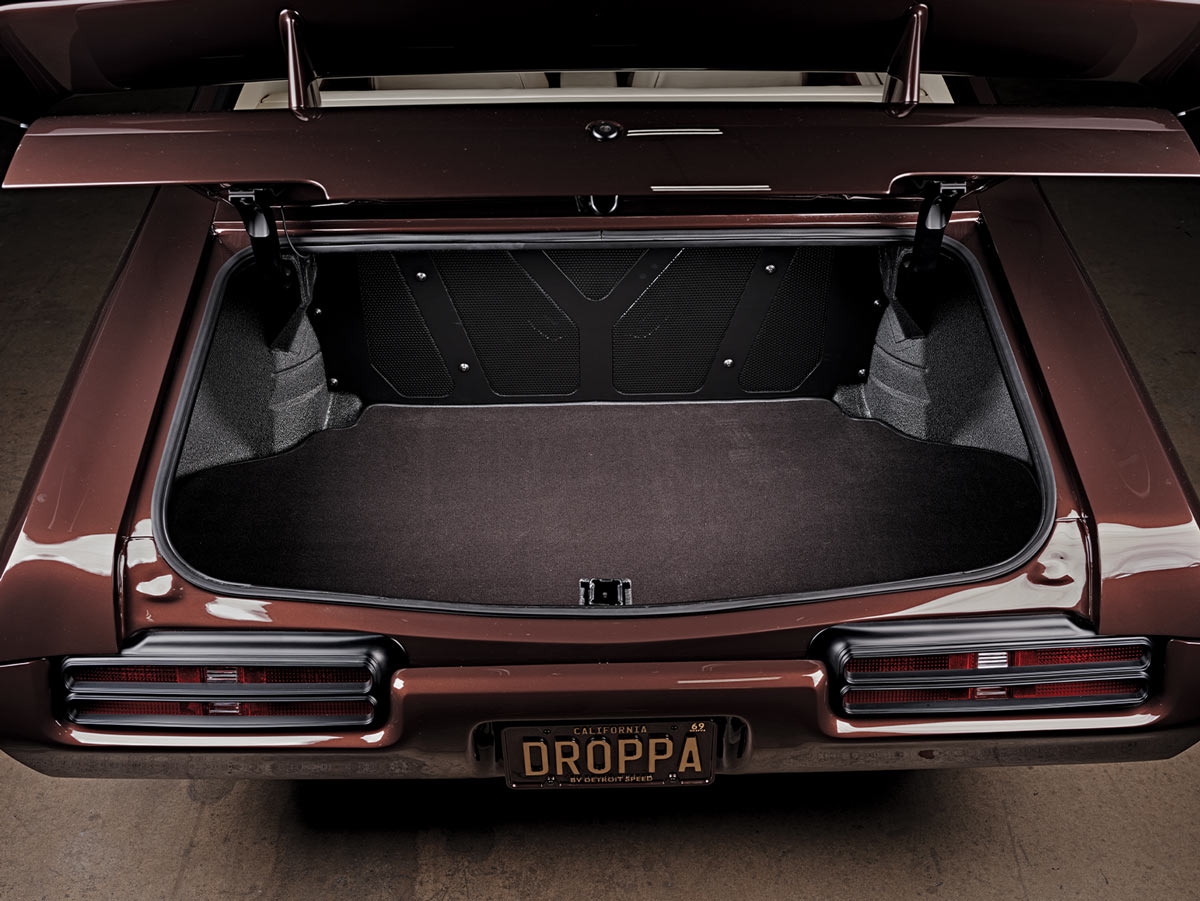
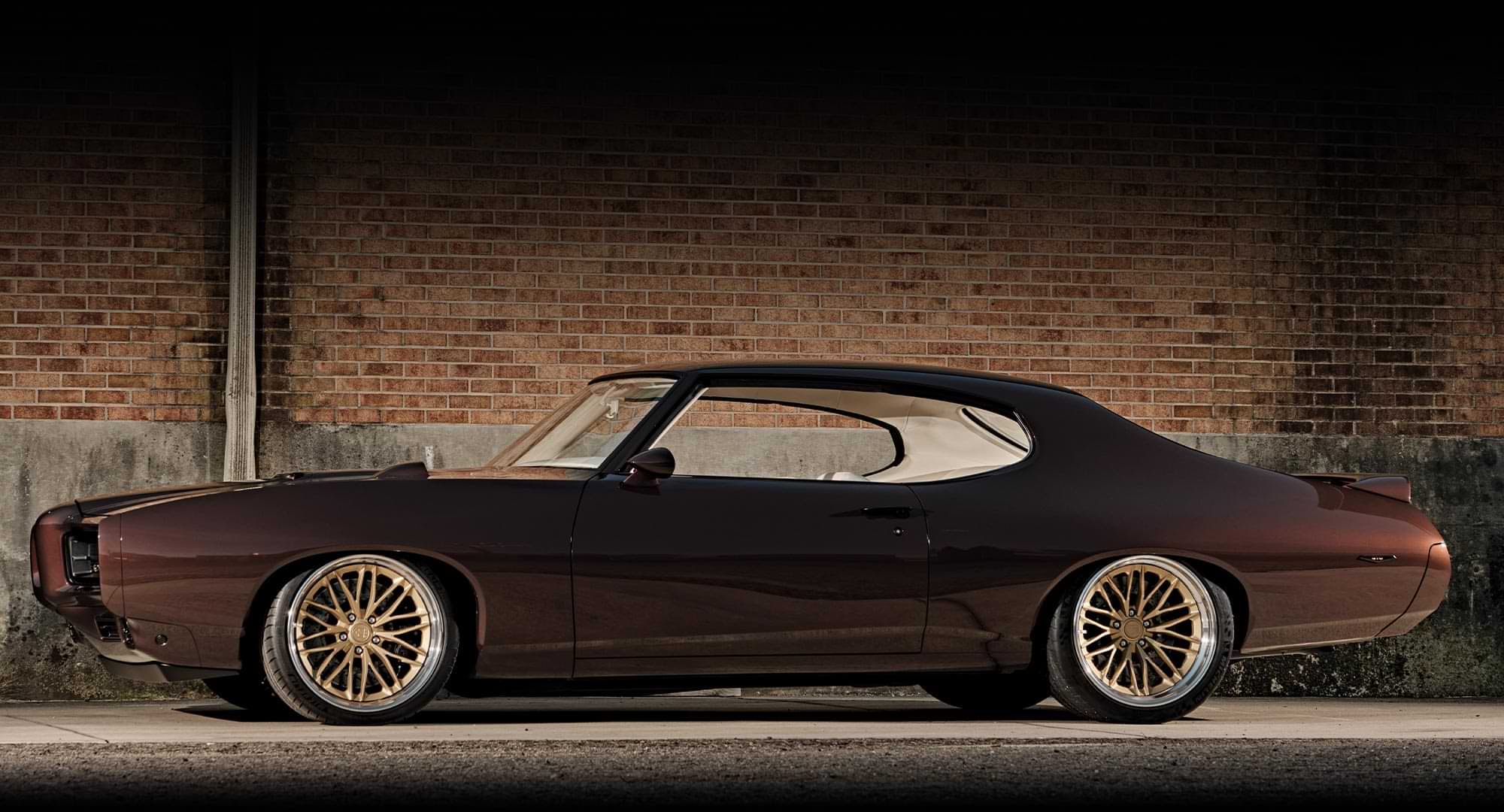
The LT5 (PN 19417105) was intended to be used in front of a manual trans. In this case, the V-8 is backed up to a Bowler Performance T-56 Magnum six-speed. The 135-pound manual is capable of handling 1,250 lb-ft and runs a 2.29 First gear and a 0.67 Sixth gear. Other trans appointments include a Tilton clutch kit and Hurst shifter.
The ’69 GTO frame was retained but highly modified to accept its new performance life. The front of the frame was modified using a DSE X-Gen 595 front suspension module (track width of 59-1/2 inches) that is positioned with 2×4-inch framerail sections. Note the front module comes with its own upper and lower control arms, DSE rack-and-pinion steering, and DSE-“tuned” suspension geometry. In the back, a custom DSE QuadraLink rear suspension is positioned, thereby eliminating the original triangulated four-link with coil springs suspension and upgrading to a more modern adjustable coilover setup. This suspension also allows for much wider than factory wheels and tires. In the case of the Hart ’69 GTO, a DSE 9-inch rearend is used with 3.82 gears and a PDE driveshaft.
At the corners let us look at the shocks, braking, and wheel and tire combinations. The always-desirable DSE/JRi-tuned single-adjustable coilover shocks are used. They can be regulated between stiff to soft ride via a click-style adjuster while ride height is controlled by a spring preload. Braking contains monster Baer binders with 15-inch drilled-and-slotted rotors and six-piston XTR monoblock calipers with D1247 pads in the front and rear. Braking is brought to life through the operation of a DSE master cylinder and brake booster kit. Rolling stock consists of HRE Valkyrja wheels (part of the now closed-out Ringbrothers Collection), measuring 20×10 and 20×12 all with 5-on-4.75 bolt pattern. From here the rubber comes via Michelin Pilot Sport 4S (summertime performance tire), sized at 275/30ZR20, and Michelin Pilot Sport Cup (optimum dry surface tire) that measure 325/30ZR20.
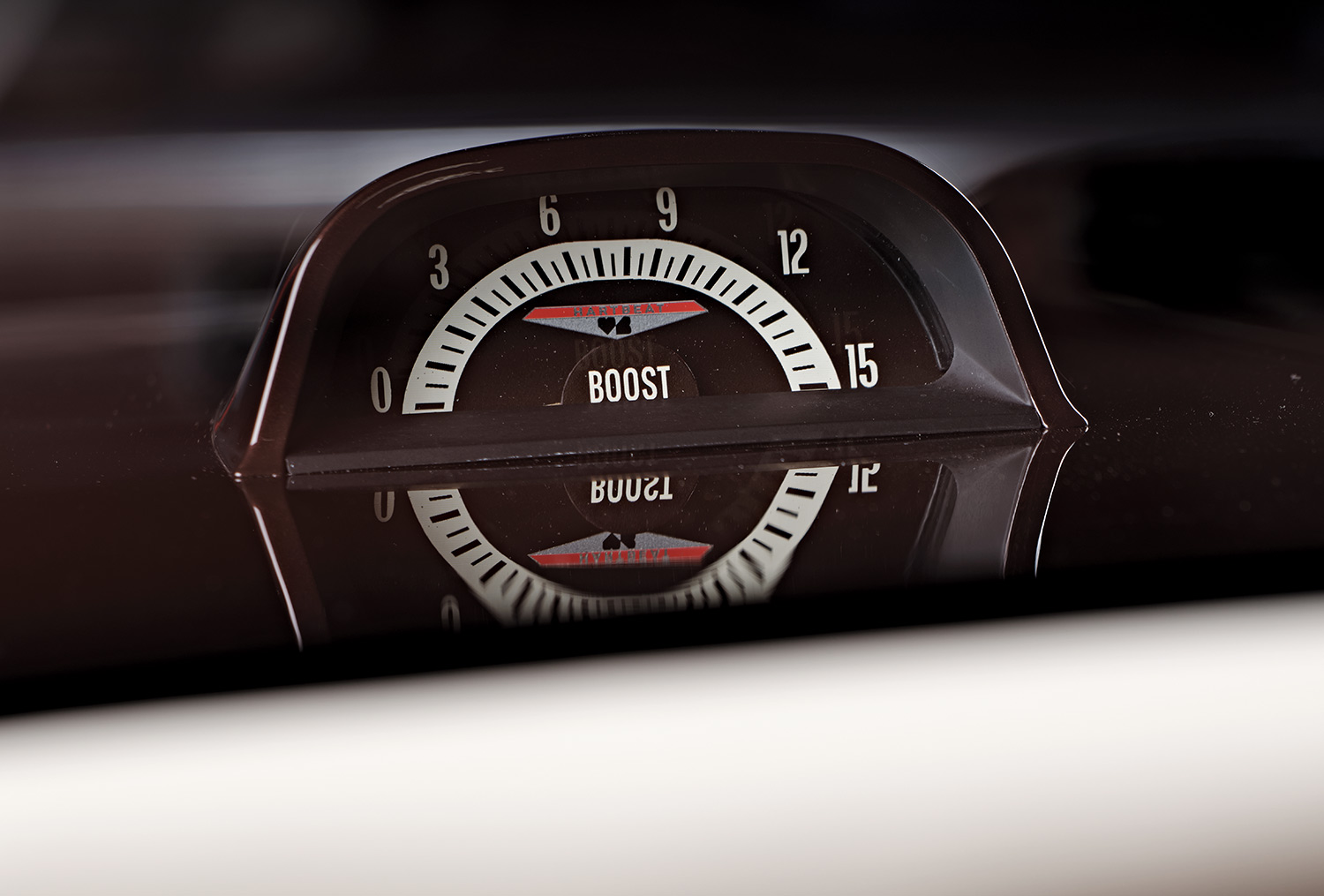
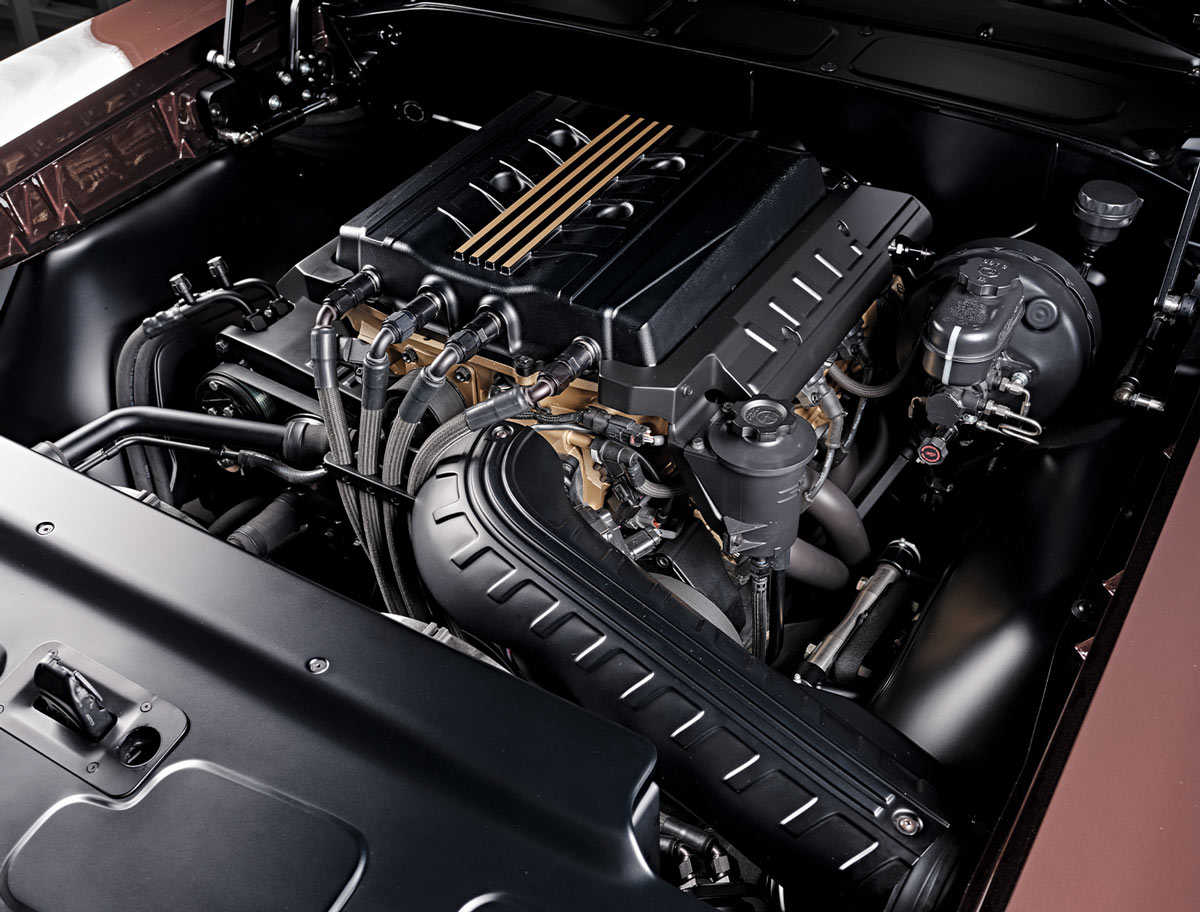
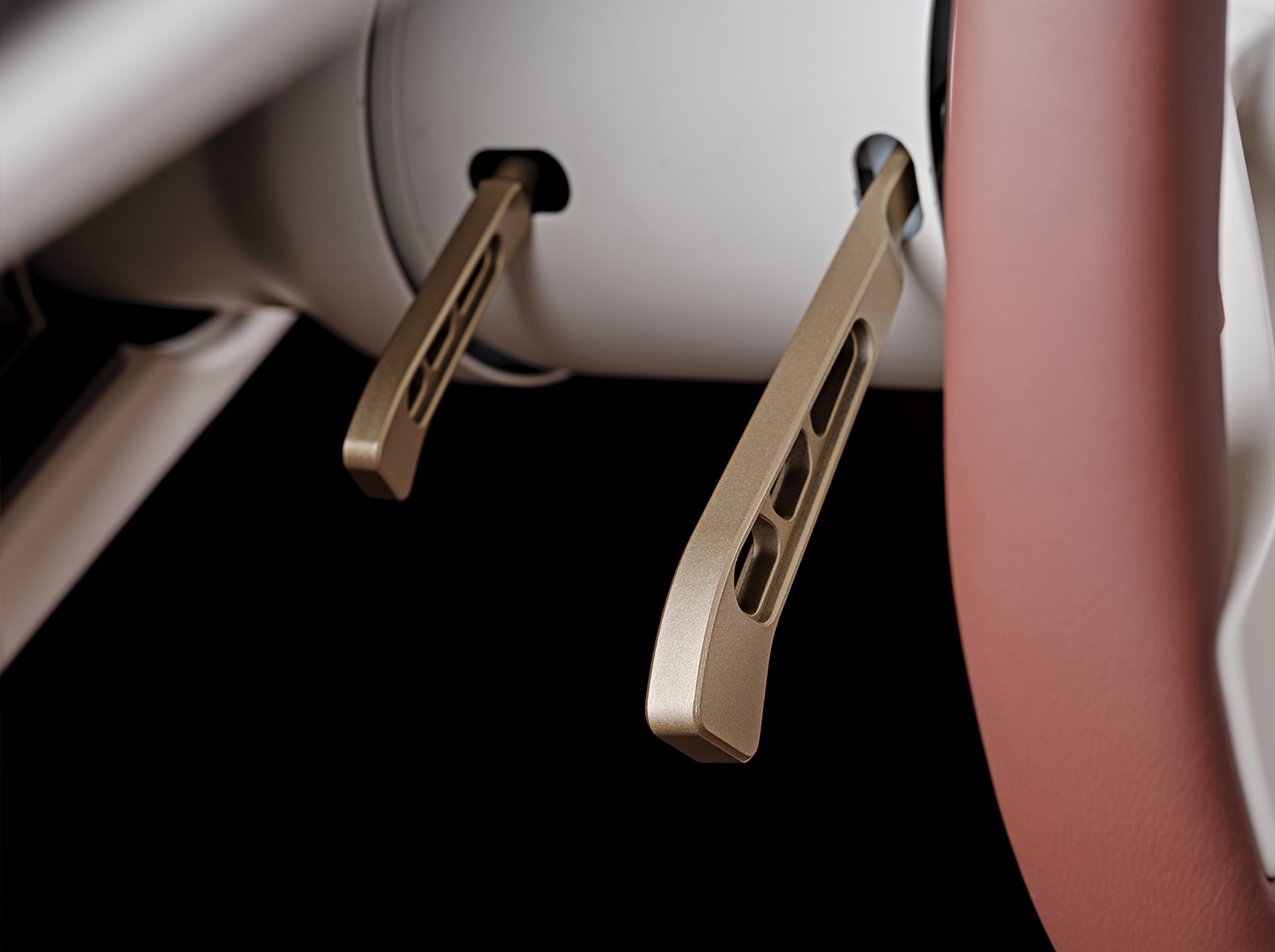
Inside you can see that the factory interior is extensively modified featuring a cream leather-covered dashboard and to it a custom set of Classic Instruments was added. More of the brown- and cream-colored leather was stitched by Avant-Garde Design over the Recaro front buckets and the custom-built rear split bench/bucket combo. The headliner is a cream suede while the door and kick panels are more of the brown and cream color combo leather. The steering column comes by way of ididit and is enhanced with a Sparc Industries Truss (made to order) three-spoke leather-wrapped wheel. The custom center console houses the Hurst shifter as well as the power window auxiliary switches. Another modern-day “required” accessory is the Vintage Air Gen IV A/C system. It and all the GTO’s electrics are brought to “life” through a DSE-modified American Autowire harness by Eads.
If you made it to last year’s SEMA show and visited the Holley Performance Products booth you most likely saw Kevin’s ’69 GTO. If you didn’t, keep your eyes peeled as it is sure to make the rounds during this winter’s indoor season, followed by the summer’s outdoor car show events.